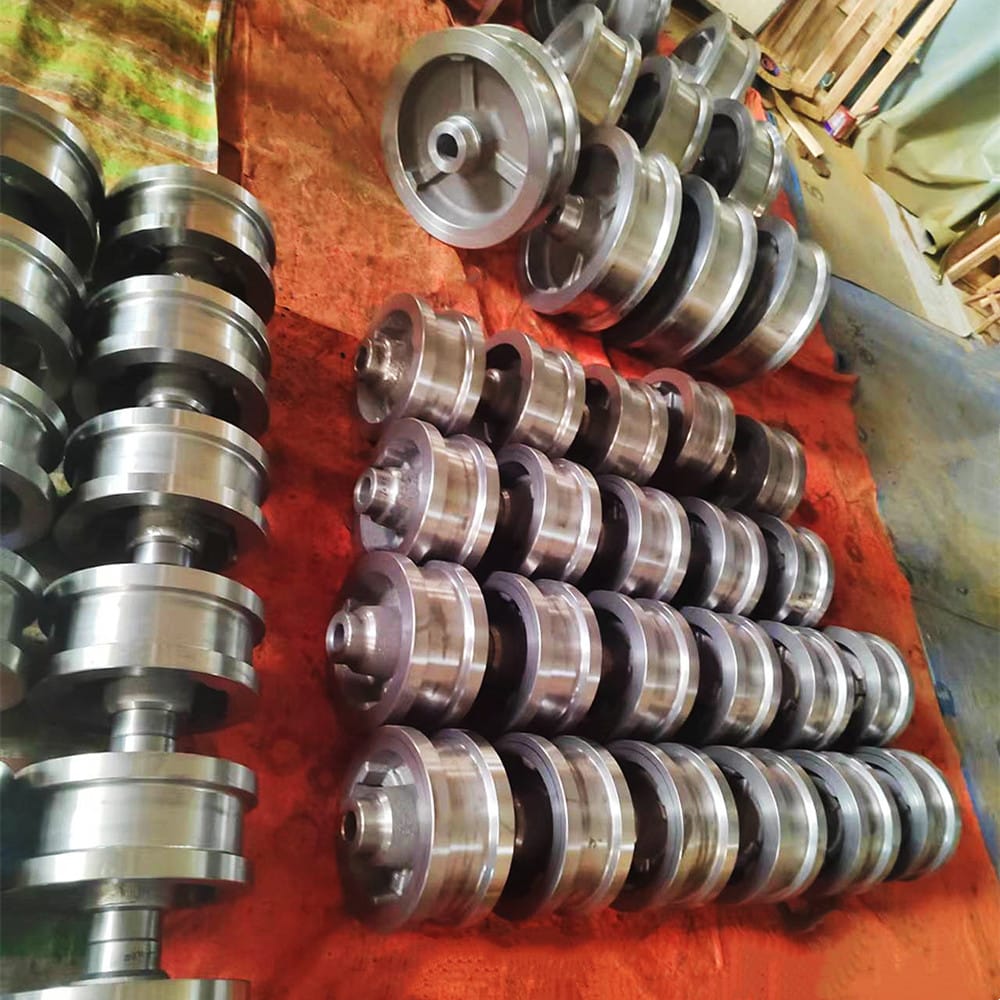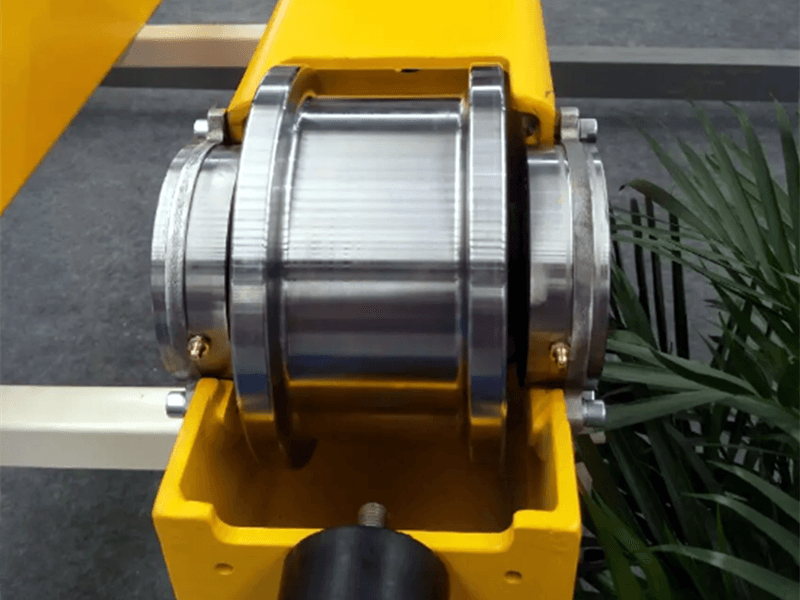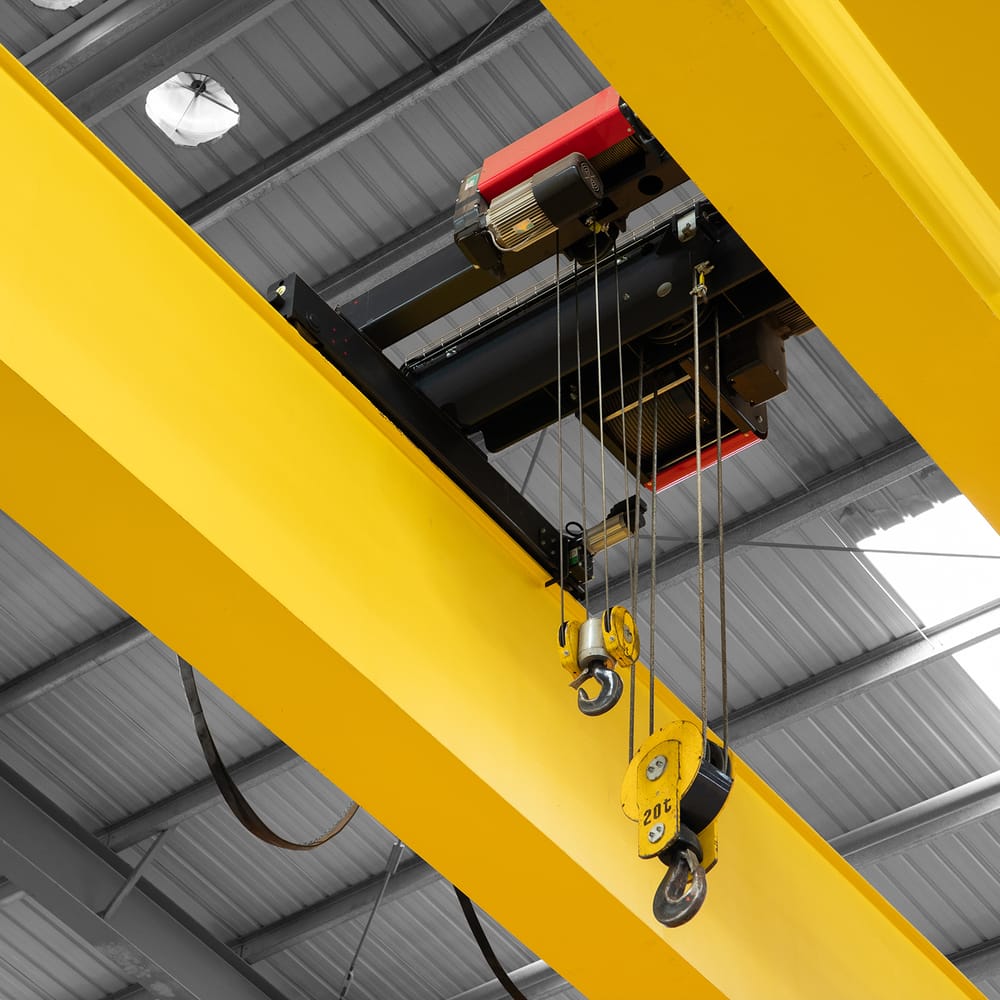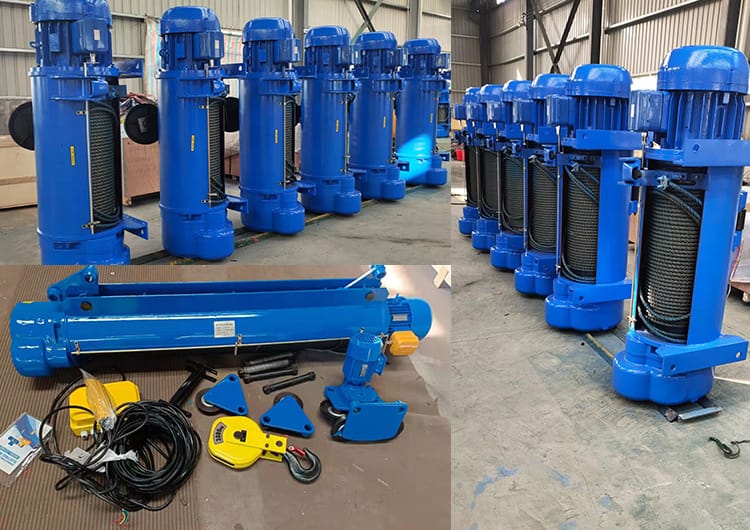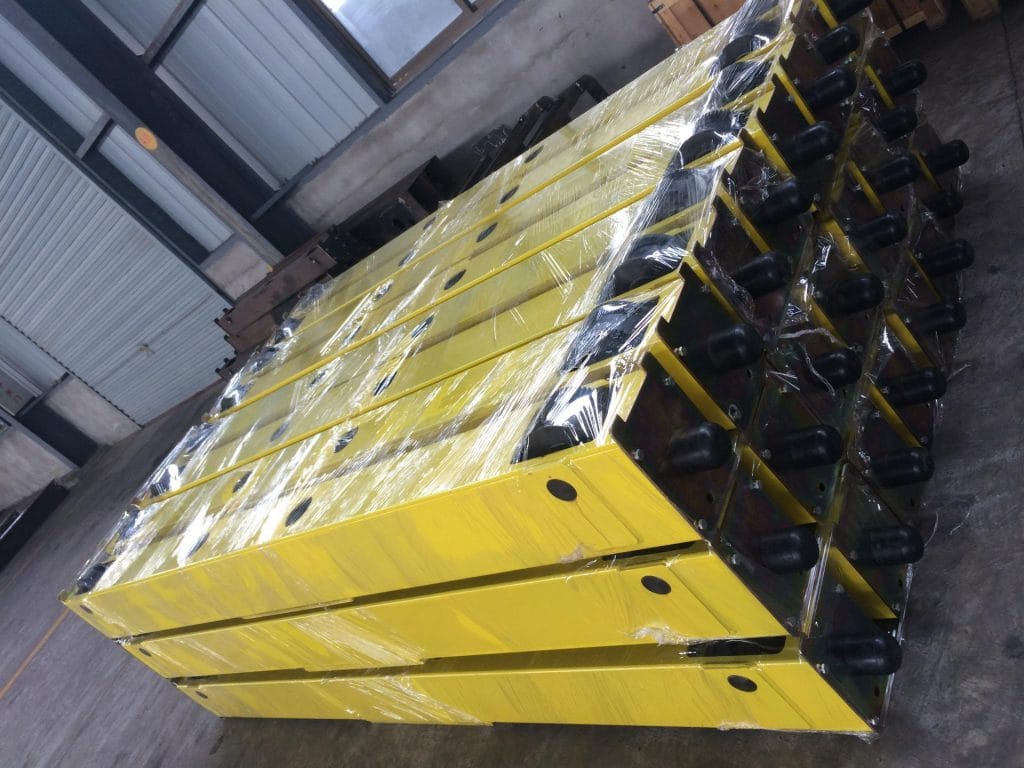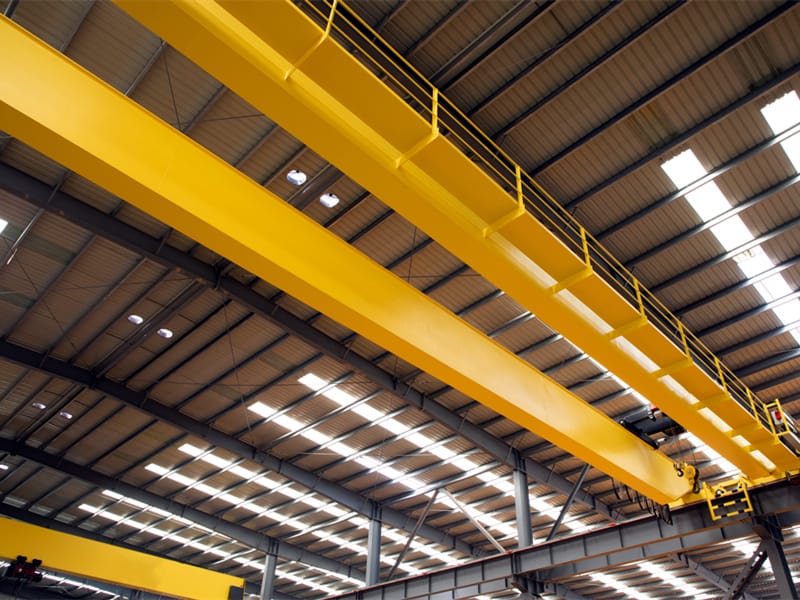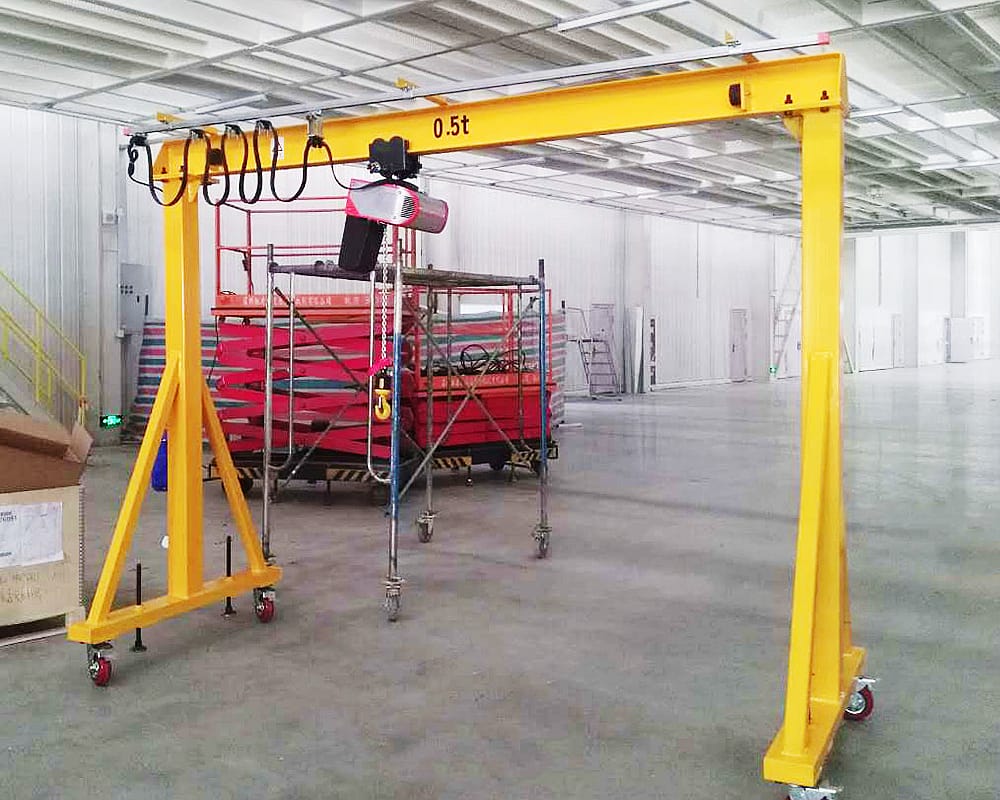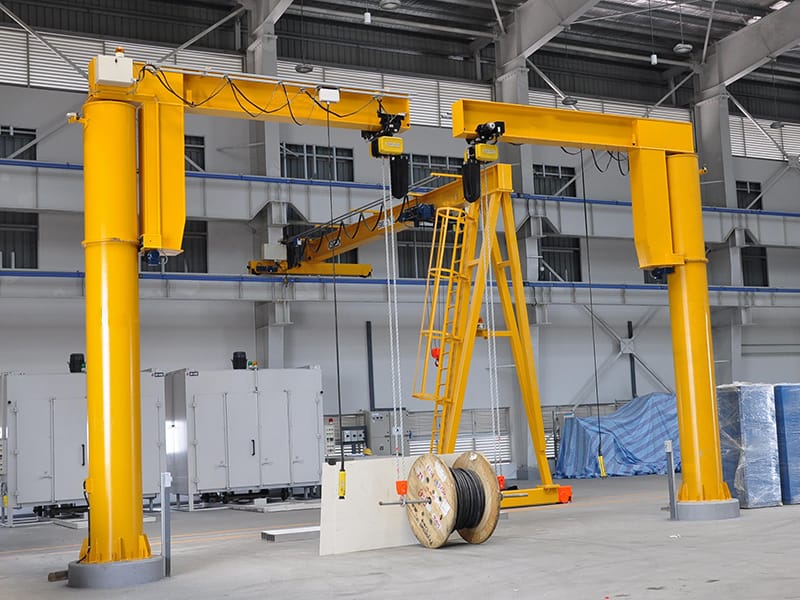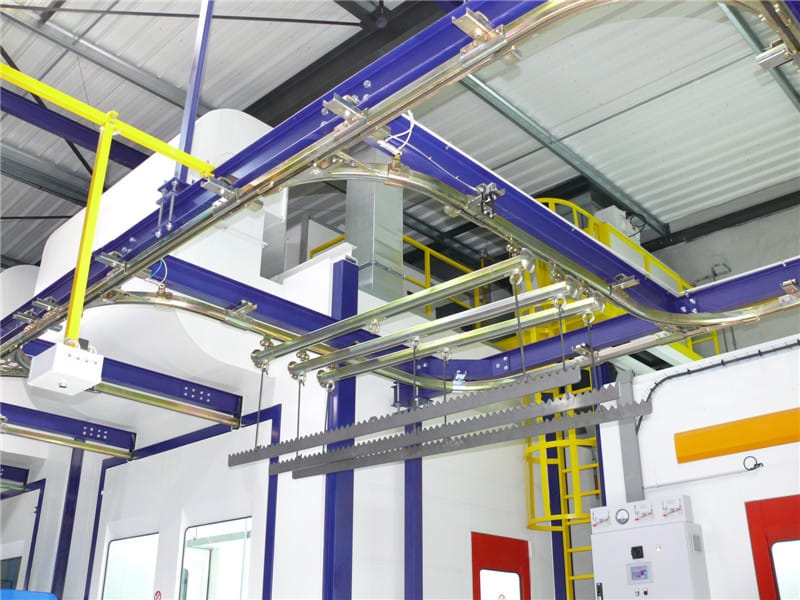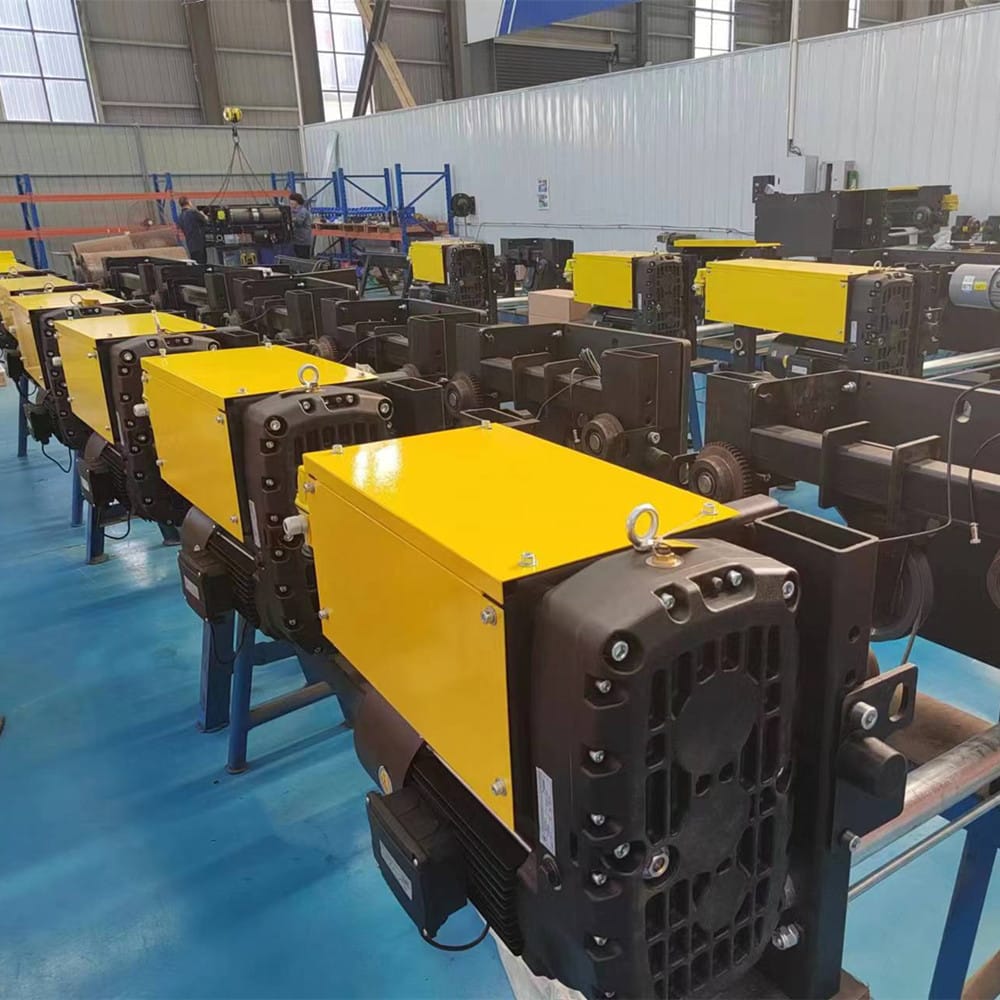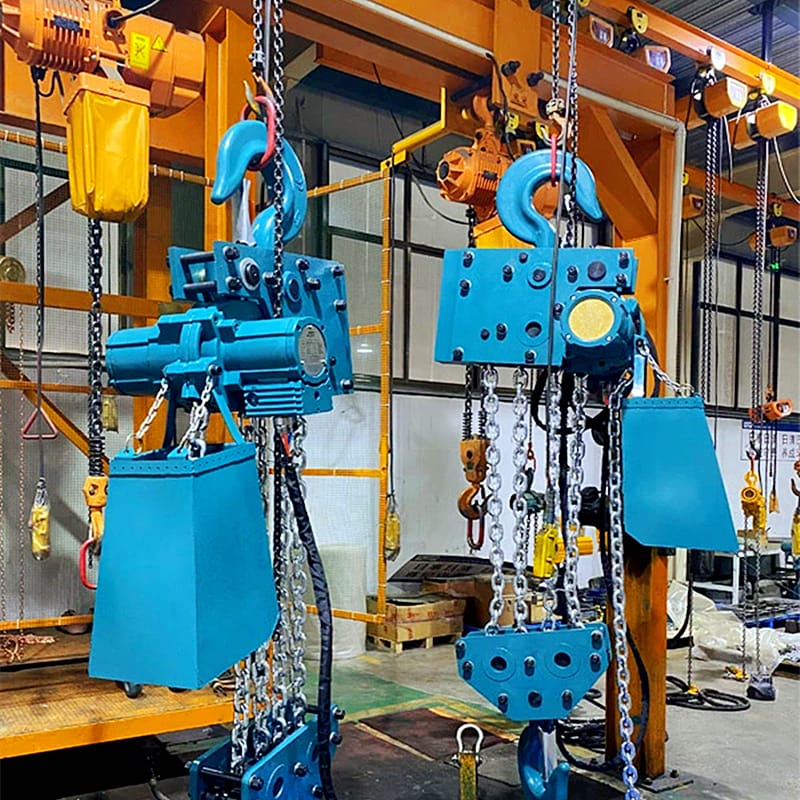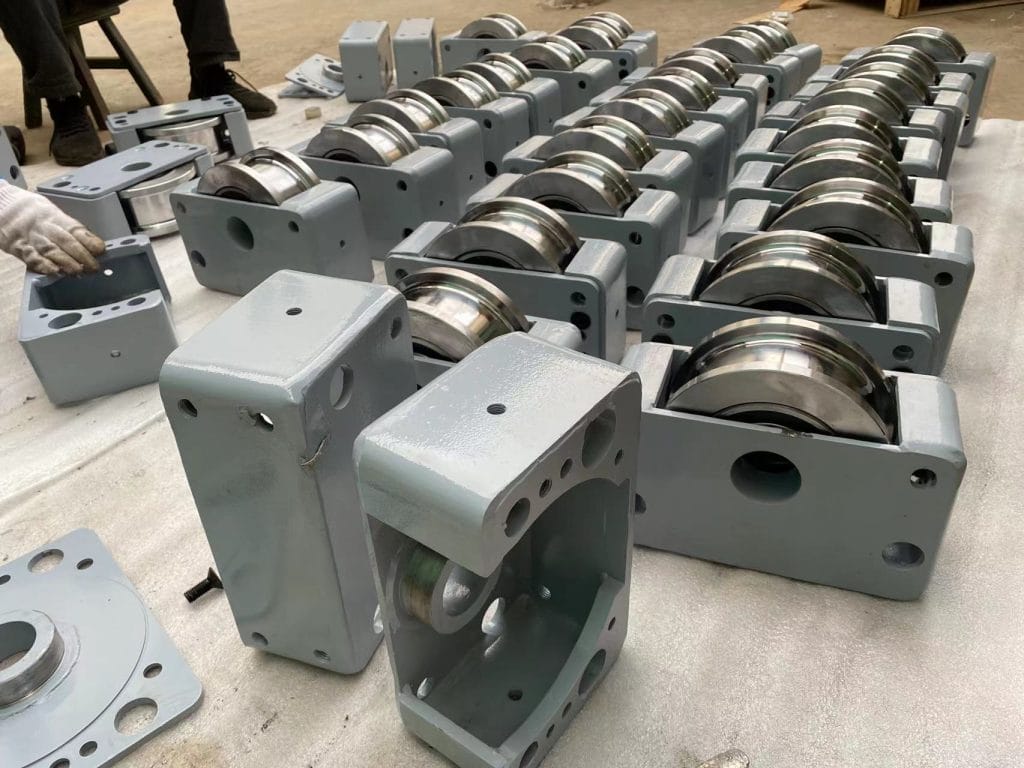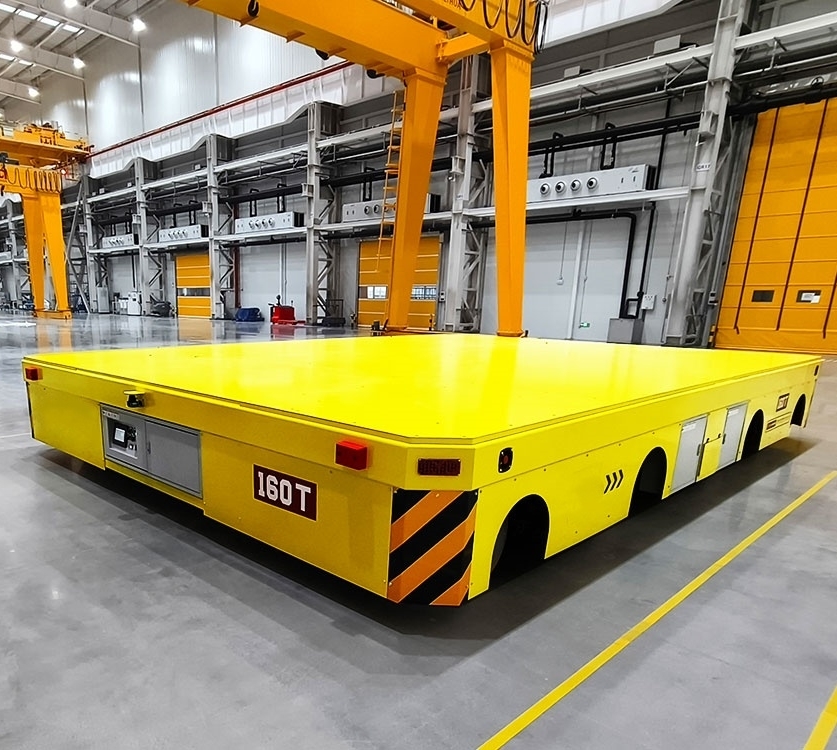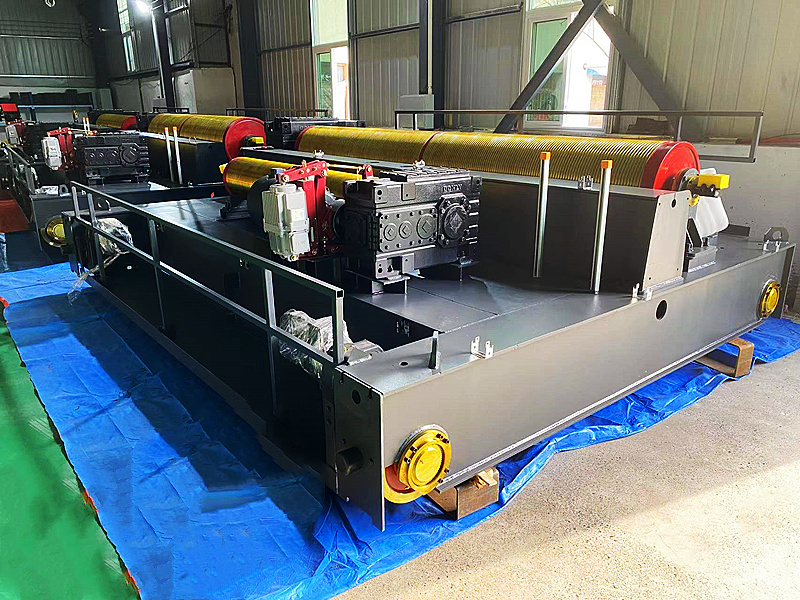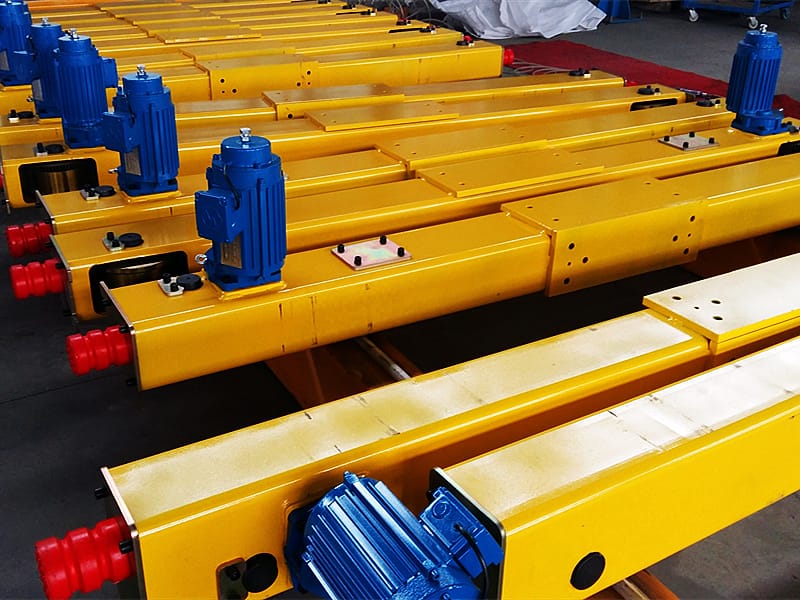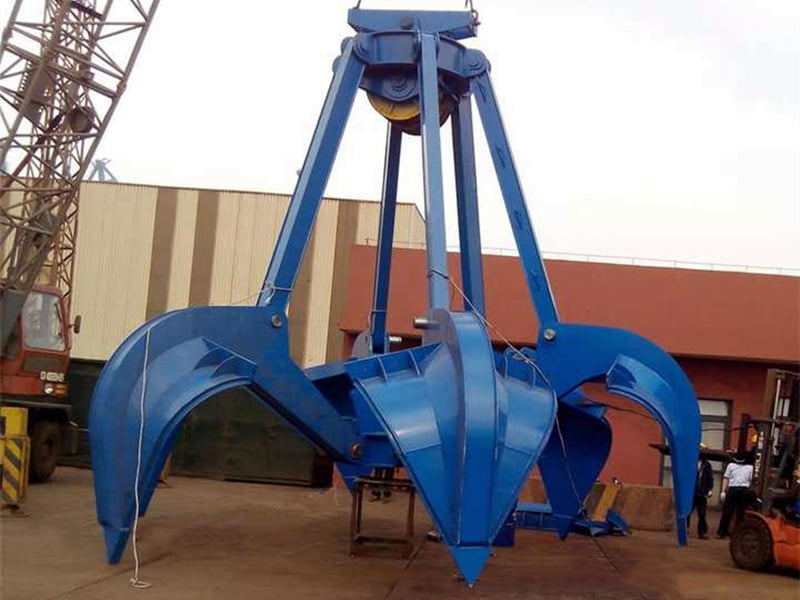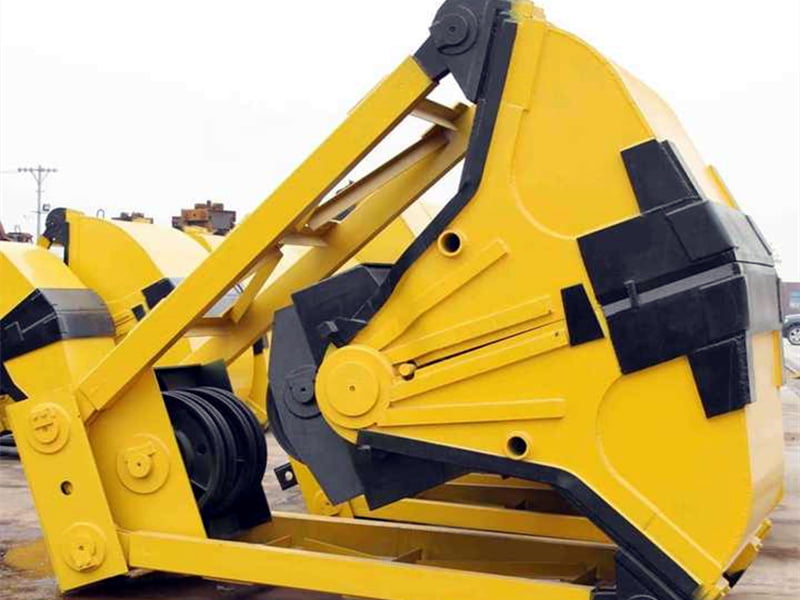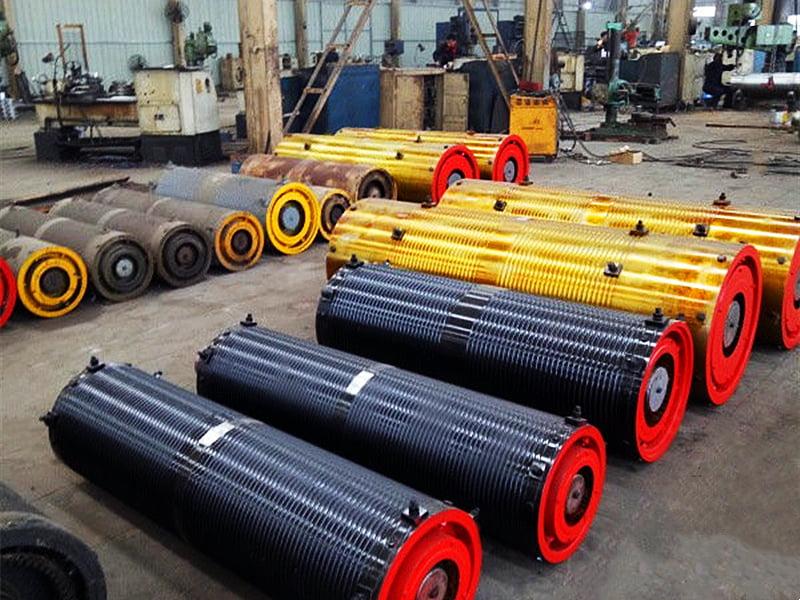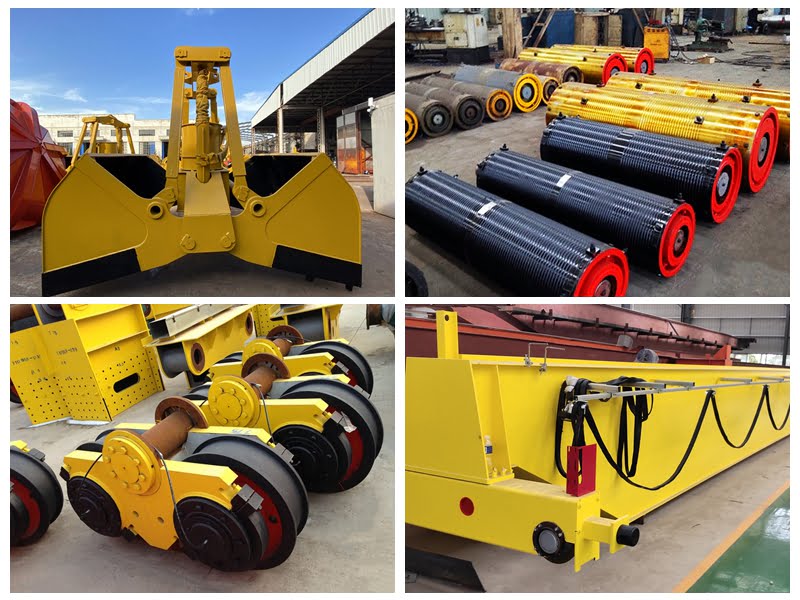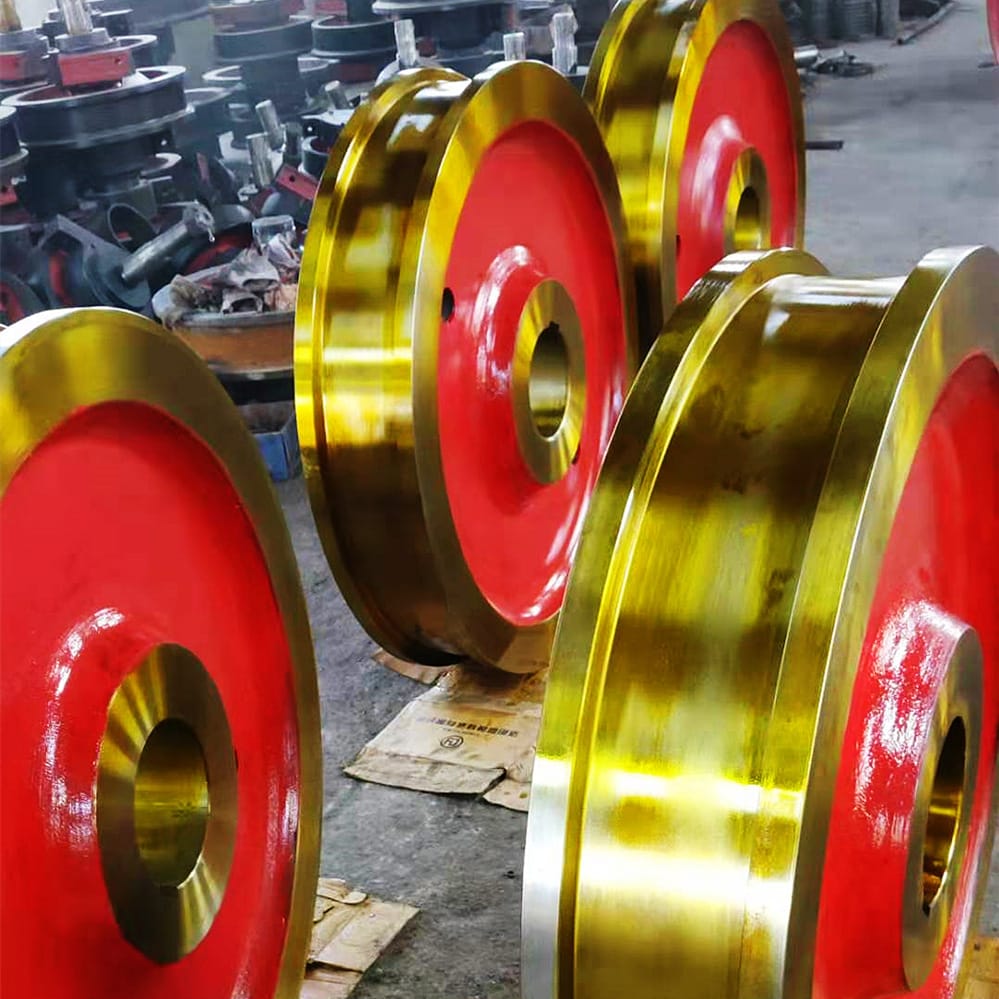
| Parameter | Range |
| Manufacturing Process | Forging,Casting,Rollmilling .etc |
| Wheel Materials | 42CrMo,60Mn,65Mn,55#,60#,ZG340-640 .etc |
| Wheel Diameter/mm | 200,250,315,400,500,630,710,800,1000 .etc |
| Applications | Industrial cranes,5T-120T |
| Operating Temperature | -20°C to 60°C |
| Material | High-strength Steel |
| Control Type | Manual, Remote, or Automatic |
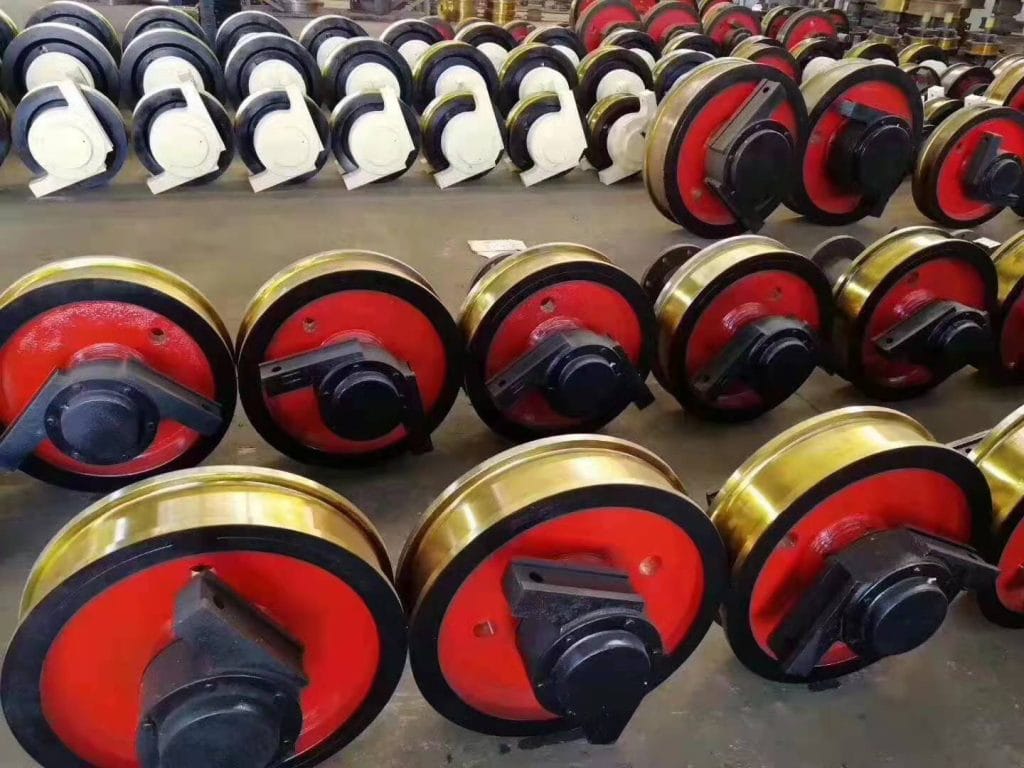
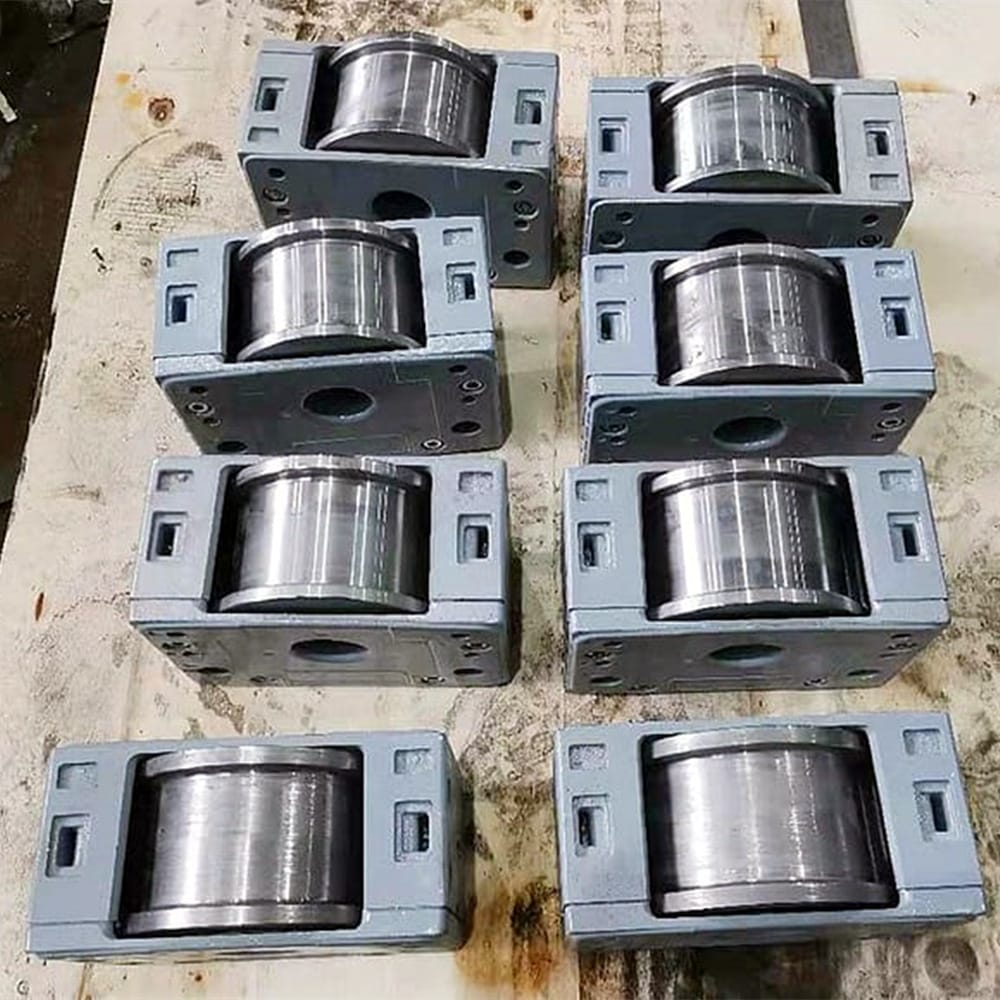
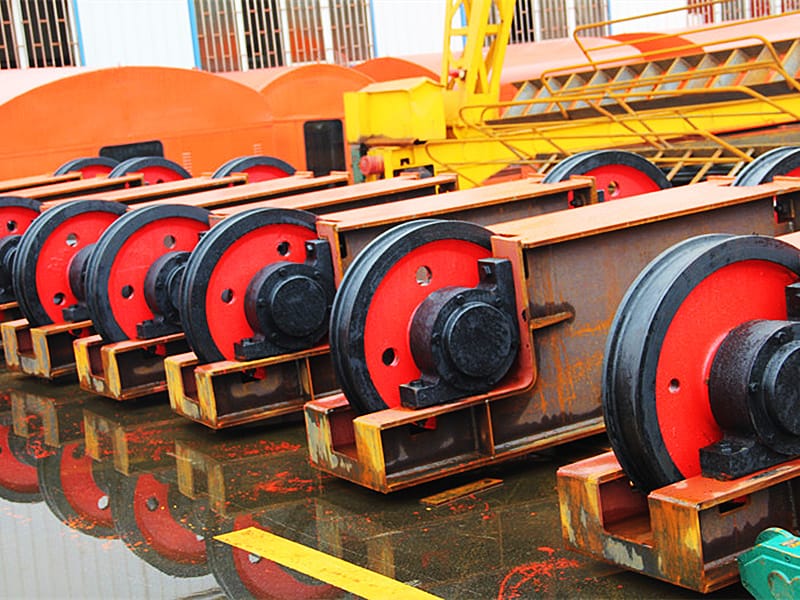
Understanding Crane Wheels: Design, Durability, and Choosing the Best for Your Crane Needs
KCICRANES is your trusted source for industrial cranes and crane kits, providing top-tier crane wheels tailored to withstand the demands of industrial environments.
Introduction
When it comes to heavy-duty lifting, crane wheels are a big deal. They’re the unsung heroes in the world of industrial lifting and handling. Often overlooked, these wheels keep massive overhead cranes and gantry cranes stable and moving smoothly, making all kinds of demanding tasks possible. And sure, they may seem like simple components, but the details behind their design, durability, and selection can make all the difference in keeping a crane running like clockwork. Let’s dive into the nitty-gritty of crane wheels, their types, and the key considerations for choosing the best options for your industrial needs.
What Are Crane Wheels, and Why Are They So Important?
Crane wheels are exactly what they sound like: the wheels that allow cranes to move along tracks and rails. Built for incredible resilience, they bear the weight of heavy loads and ensure smooth operation on both ground and overhead cranes. Without reliable crane wheels, a crane can face significant safety risks, costly downtime, and in some cases, total malfunction.
Key Features of Quality Crane Wheels
- Durability: They’re designed to withstand flange wear, mechanical overloads, and extreme conditions.
- Heat-treated steel: Crane wheels like those from KCICRANES are heat-treated to provide toughness and resist wear.
- Uniform Hardness: Hardness in the tread and flange wear surfaces ensures long-lasting service.
- Flange Integrity: These wheels are specially built to resist flange fractures and wear.
Crane wheels are no ordinary wheels! With high wear-resistance and strength to handle heavy loads, they’re forged from fine-grain, vacuum-degassed medium carbon steel for enhanced performance. The unique manufacturing process gives them a uniform hardness pattern, adding life and resilience to every wheel.
Types of Crane Wheels: Finding the Right Fit
Choosing the right type of crane wheel depends on several factors, including the kind of crane, the loads it typically lifts, and the environment it operates in. Here are some of the most common types:
1. Single-Flange and Double-Flange Wheels
Flanges are the elevated edges on a crane wheel that keep it aligned on its track. They prevent the wheel from veering off course. Single-flange wheels, as the name suggests, have one flange on the outer edge, while double-flange wheels have two. Here’s the scoop:
- Single-Flange Wheels: Commonly used in overhead cranes where the structure provides stability.
- Double-Flange Wheels: Essential for ground-based or gantry cranes, where stability relies on the track itself.
2. Forged and Cast Crane Wheels
The choice between forged and cast crane wheels depends largely on durability needs and cost considerations:
- Forged Wheels: Made by compressing steel, resulting in a stronger, denser product that resists wear and tear exceptionally well.
- Cast Wheels: More cost-effective but slightly less durable, ideal for lighter crane applications.
3. Customized Crane Wheels
In situations where standard wheels just don’t cut it, custom-designed wheels come into play. KCICRANES specializes in custom solutions, ensuring each wheel is perfectly adapted to specific crane requirements, from material selection to heat treatment.
Maintenance Tips for Long-Lasting Crane Wheels
Keeping crane wheels in top shape isn’t just a matter of aesthetics or minor savings—it’s critical for safe, efficient operation. Here are some handy tips:
- Regular Inspections: Conduct frequent visual checks for cracks, pitting, and spalling (small surface fractures).
- Lubrication: Applying the correct lubricants can reduce wear and protect against rust.
- Track Alignment: Misaligned tracks cause excessive strain on the wheels and reduce lifespan.
- Flange Monitoring: A worn or broken flange requires immediate attention to prevent misalignment and derailment.
One of the most common reasons for crane wheel replacement is flange wear, followed by fractures due to overloading. Routine maintenance can catch these issues early, saving money and avoiding unexpected downtime.
Choosing Crane Wheels: What to Consider
When selecting crane wheels, there are key points to keep in mind:
Load Requirements
The load a crane typically handles is the primary factor. High-load applications need wheels with higher hardness and wear resistance. KCICRANES, for instance, offers wheels with a hardened tread to maximize strength under pressure.
Wheel Material
Most crane wheels are made of forged steel due to its toughness and wear resistance. KCICRANES uses fully killed, vacuum-degassed medium carbon steel, specifically chosen to avoid porosity and deliver superior strength.
Heat Treatment
Heat treatment is critical for crane wheel longevity. Through controlled heating and cooling, heat treatment hardens the wheel surface while keeping the core ductile to withstand shocks and impacts.
Durability and Cost
Balancing initial costs with durability is essential. Spending a bit more on high-quality, durable wheels can save you in the long run by reducing the frequency of replacements.
Common Issues with Crane Wheels and How to Solve Them
Certain issues come up frequently with crane wheels, but knowing how to address them can make life easier:
- Flange Wear: Causes misalignment and track deviation. Solution: Choose wheels with hard-wearing flanges, like those provided by KCICRANES.
- Pitting and Spalling: Tiny surface damages that lead to cracks. Solution: Regular inspection and using heat-treated, high-grade wheels can minimize this.
- Mechanical Overloads: Often result in wheel fractures. Solution: Ensure the crane operates within its specified load limit.
FAQs about Crane Wheels
How often should crane wheels be inspected?
Frequent inspections are crucial. Visual inspections should happen weekly, while a more detailed examination by a professional is recommended every few months.
What’s the difference between single-flange and double-flange wheels?
Single-flange wheels have one raised edge, typically used on overhead cranes, while double-flange wheels have two edges and are essential for ground-based cranes.
Why choose forged crane wheels over cast wheels?
Forged wheels offer superior strength and wear resistance compared to cast wheels, making them ideal for high-load and high-wear applications.
Are KCICRANES wheels suitable for all crane types?
Yes! KCICRANES offers a variety of crane wheels, from standard to customized options, ensuring compatibility with different crane models and operational needs.
KCICRANES Crane Wheels
Crane wheels may seem like small components, but they play a critical role in ensuring a crane operates efficiently and safely. From selecting the right type to understanding the importance of maintenance, having the right knowledge can help you make informed decisions that save money and keep operations smooth. And with KCICRANES, a trusted supplier in the industrial crane sector, you’ll find expertly crafted, durable crane wheels tailored for even the most demanding environments. Next time you think about crane maintenance, don’t forget to give your wheels a little extra attention—they might just be the most important part of the job!If you need overhead cranes, gantry cranes or other crane kits,welcome to send a free inquiry to KCICRANES.
If you need any other crane kits,welcome to send a free inquiry.Email:info@kcicranes.com
Address
Xinxiang City, Henan Province, China
Phone & Whatsapp
+86 16650373589
info@kcicranes.com

